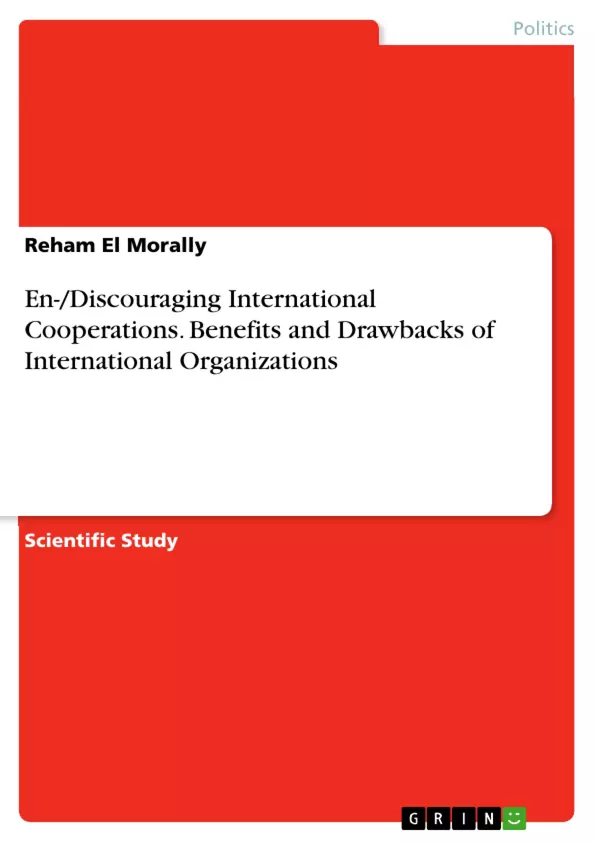This paper will discuss to what extent do domestic politics impact inter-state cooperation, specifically, whether regime type affects whether states will cooperate over security issues or not. Domestic politics constitute a wide range of subfields under which one can see education, businesses, energy, health care and other sectors of the political apparatus which are determined by the state apparatus. Different regime types approach domestic politics differently and consequentially also have different forms in which they execute foreign policy and behave internationally. The question proposed is meant to assess the extent to which domestic politics affect inter-state cooperation, i.e. to which extent does it matter whether the domestic regime is democratic, autocratic, or fascist regimes affect how the state formulates its foreign policy and engages in agreements with other states.
International cooperation is not a new phenomenon, yet it has been heavily understudied throughout the first and second world wars and only gained importance in the cold war period, where cooperation and alliance formations with the increasing number of newly independent states and the bipolar atmosphere of the global arena advocated for the importance of cooperation between states. This research is of importance because the ever-changing atmosphere of global shocks, ranging from security issues to civil wars and internal instability, have all affected how states behave internationally.
This study, however, will focus on how inter-state cooperation is independent from domestic regime structures and is rather driven by the Gross National Product (GNP) i.e. the financial strength of the country and Human Development Index (HDI) ranking of the state. The study is expected to unravel the importance of the financial capabilities to increase inter-state cooperation in the lack of an overarching global governance system. Different theoretical frameworks have approached the issue of regime types and their effects on international cooperation differently. This will be discussed in the literature review and the theoretical arguments sections.
Inhaltsverzeichnis (Table of Contents)
- I. Literature Review
- II. Theoretical Argument
- III. Research Design
- IV. Conclusion
- V. References
Zielsetzung und Themenschwerpunkte (Objectives and Key Themes)
This paper investigates the impact of domestic politics on interstate cooperation, specifically focusing on the relationship between regime type and states' willingness to cooperate on security issues. The study aims to assess the extent to which domestic regime structures (democratic, autocratic, or fascist) influence a state's foreign policy and its engagement in international agreements.
- Influence of domestic politics on interstate cooperation.
- Impact of regime type on state behavior in international relations.
- Role of international organizations in promoting cooperation.
- Relationship between economic strength and cooperation.
- Theoretical frameworks analyzing regime types and their effects on international cooperation.
Zusammenfassung der Kapitel (Chapter Summaries)
- I. Literature Review: This chapter analyzes existing literature on the effects of different domestic regimes on international cooperation, drawing on theories by Russett and Oneal, Kant, Doyle, and Moravscik. It discusses the role of international organizations in promoting cooperation and the impact of domestic accountability on states' behavior.
- II. Theoretical Argument: This chapter will delve into the theoretical arguments surrounding regime types and their effects on international cooperation. It will likely examine various theoretical frameworks, such as liberalism, realism, and constructivism, to provide a comprehensive understanding of the different perspectives on this complex issue.
Schlüsselwörter (Keywords)
The primary keywords and focus topics of this text include international organizations, international cooperation, human development index, foreign policy, and domestic policy. The study explores the relationship between domestic politics, regime types, and a state's ability to engage in international cooperation, particularly in the context of security issues.
Frequently Asked Questions
Does regime type affect international security cooperation?
The paper investigates whether democratic, autocratic, or fascist regimes behave differently in foreign policy and international agreements.
What is the main thesis regarding interstate cooperation in this study?
The study argues that cooperation may be more dependent on economic factors like GNP and Human Development Index (HDI) than on domestic regime structures.
How do international organizations promote cooperation?
They provide a framework for agreements and accountability, helping states navigate global shocks and security issues.
When did the study of international cooperation gain importance?
While understudied during the World Wars, it gained significance during the Cold War due to bipolarity and the rise of newly independent states.
Which theoretical frameworks are discussed in the literature review?
The paper reviews theories by scholars like Kant, Doyle, Moravscik, Russett, and Oneal, covering liberalism, realism, and constructivism.
- Citation du texte
- Reham El Morally (Auteur), 2019, En-/Discouraging International Cooperations. Benefits and Drawbacks of International Organizations, Munich, GRIN Verlag, https://www.grin.com/document/492832



